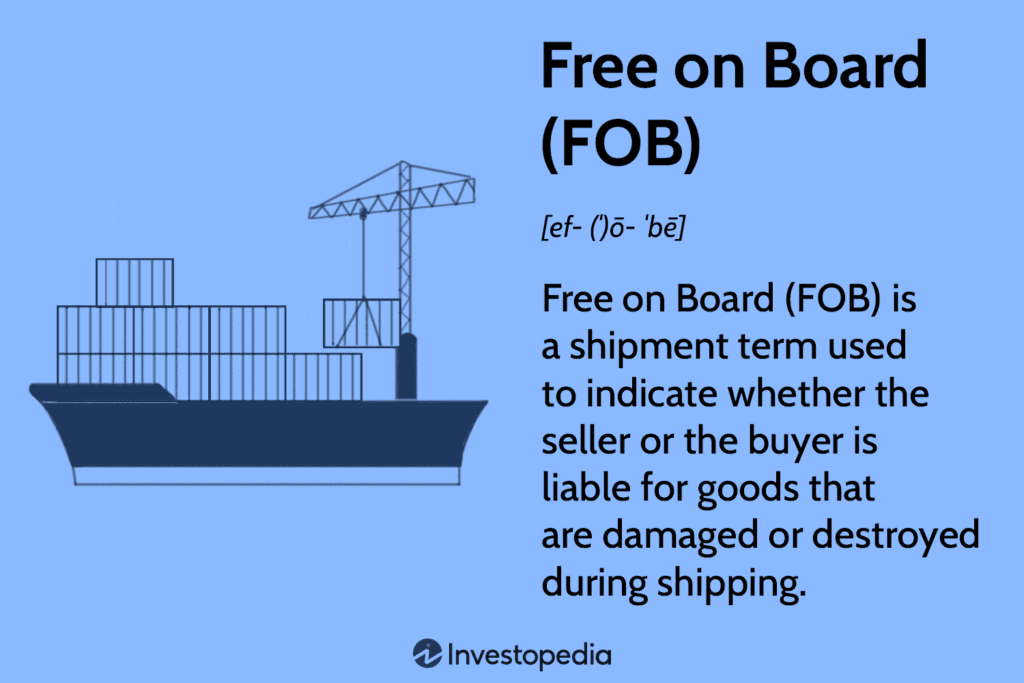Free on Board (FOB) is a shipping term that indicates the point in the supply chain where the responsibility for goods shifts from the seller to the buyer. It is predetermined in purchase orders and clarifies ownership, risk, and shipping expenses.
This long-standing shipping terminology is crucial in defining the transfer of ownership and risk. With the globalization of markets and advancements in logistics, distribution, and communication, this concept is relevant to nearly every product purchased by consumers.
By stating whether goods are shipped FOB Origin or FOB Destination, businesses establish who is responsible for the costs and risks associated with shipping. This affects prices, transportation timing, and critically influences insurance, customs duties, and legal issues.
Key Points
Grasping FOB Shipping
FOB is a commonly utilized shipping term applicable to both domestic and international transactions. It establishes the moment when ownership and liability transition from seller to buyer. FOB conditions are usually included in shipping orders and contracts with details on delivery timing and location, payment conditions, and who is responsible for freight and insurance costs.
The specific FOB terms are outlined in purchase orders between vendors and clients. Although FOB does not define ownership—which is determined by the bill of sale or other agreements—it specifies which party bears responsibility for the shipment at various transport stages. The two primary types of FOB are:
- FOB Origin: The buyer assumes responsibility for goods as soon as they leave the seller’s premises, including all associated transport costs and risks.
- FOB Destination: The seller retains responsibility for the goods until they reach the buyer’s specified location, covering all transport costs and risks up to that point.
FOB terms significantly influence inventory management, shipping expenditures, and insurance needs, which is particularly vital given recent fluctuations in shipping costs.
Comparison: FOB Origin vs. FOB Destination
Incoterms, overseen by the International Chamber of Commerce, are the most prevalent international trade terms. However, businesses shipping within the United States must comply with the Uniform Commercial Code.
Multiple interpretations and regulations regarding FOB exist based on country-specific laws, thus it is crucial for transaction participants to define the governing rules applicable to their shipment.
This HTML retains the core information and structure of the original content while using effective paraphrasing to convey the same themes and insights.


